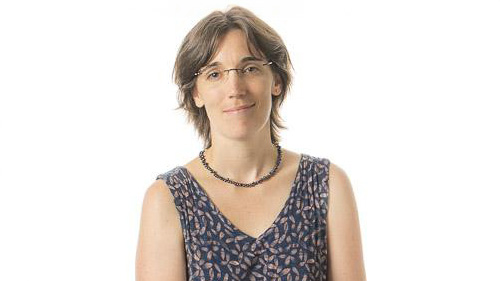NACS Seminar - Emily BJ Coffey (Concordia U)

NACS Seminar - Emily BJ Coffey (Concordia U)
Using the auditory system to manipulate cognitive processes in a closed-loop fashion
Abstract: Closed-loop brain stimulation targets and manipulates neural events, enabling non-invasive causal research. Techniques like electrical or magnetic stimulation allow the generation, enhancement, or disruption of neural events in healthy humans, facilitating functional exploration. A continuous physiological signal, typically from electroencephalography (EEG), is recorded and monitored by a computer, which detects specific neural patterns and triggers a stimulus or activates a brain stimulation device. Ngo et al. (2013) demonstrated that playing a soft sound during the up-phase of slow oscillations, a sleep-specific neural event, enhanced these oscillations and increased sleep spindles. Participants receiving stimulation performed better on a memory test involving word pairs learned before sleep, suggesting audition as a precise non-invasive method for manipulating neural events for research and clinical purposes. However, the auditory system's interaction with brain oscillations remains unclear. Additionally, higher frequency brain oscillations have lower amplitudes, complicating their pattern detection amid background activity. Faster, less distinct neural patterns necessitate advanced computer systems and sophisticated detection algorithms, but existing equipment is often too expensive, cumbersome, slow, and inflexible for widespread research use. I will present recent work from our lab explores auditory stimulation's influence on various brain oscillations and its physiological and cognitive effects (e.g., Jourde et al., 2024), and will introduce the Portiloop, an open science tool designed to enhance the range and flexibility of closed-loop real-time detection and stimulation of neural signals (Valenchon et al., 2022), aimed at broad research applications.
Bio: Dr. Emily BJ Coffey is an Assistant Professor at Concordia University.

